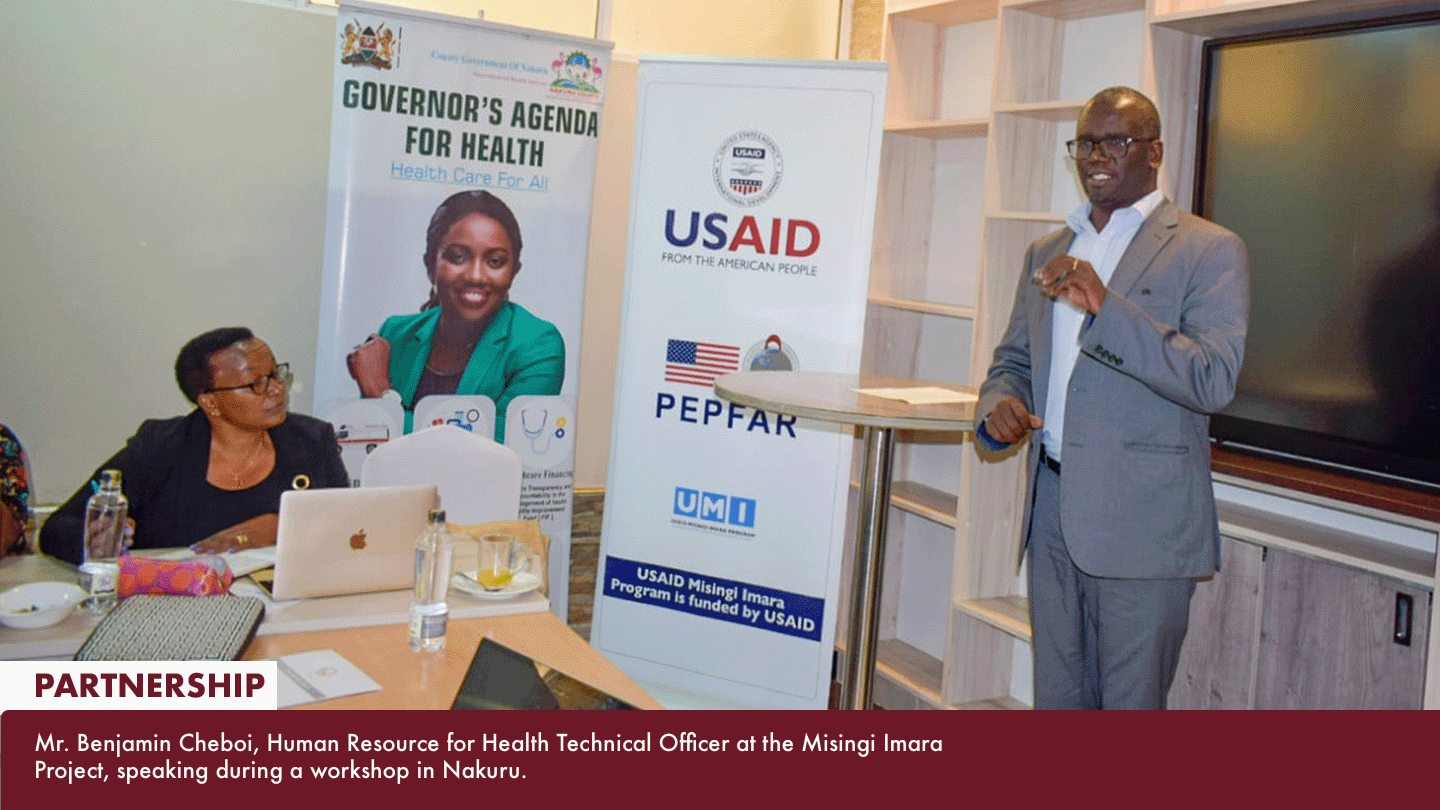
When Experience Speaks: Laikipia County’s WISN Wisdom Lights the Way for Nakuru
Imagine embarking on a challenging journey with no map or guide.
The path is uncertain, and the potential pitfalls are numerous. That’s precisely the situation many counties in Kenya faced when implementing the Workload Indicators of Staffing Needs (WISN) tool to optimize healthcare staffing.
Enter the USAID Misingi Imara (UMI) Program, a beacon of support for counties navigating this complex terrain. UMI, funded by USAID Kenya and led by the Kenya Medical Training College (KMTC), in partnership with Jhpiego and Living Goods exemplifies, aims to strengthen health systems in the country.
“We knew that sharing experiences and lessons learned would be invaluable for counties just starting their WISN journey,” says Benjamin Cheboi, UMI’s Human Resource for Health Technical Officer. “So, we brought together USAID partners working on WISN for a peer-to-peer exchange.”
The star of the show? USAID Tujenge Jamii (UTJ), a fellow USAID-funded project that had already successfully implemented WISN in Laikipia County. Their team shared their experiences, challenges, and triumphs, providing a roadmap for others.
UTJ’s Health Systems Strengthening Officer, Ms. Martha Kagwara, recalls, “We faced some initial resistance, but by engaging key stakeholders, ensuring data accuracy, and focusing on confidentiality, we were able to gain trust and achieve a successful WISN implementation.”
The Laikipia team’s experience resonated with the audience, especially representatives from Nakuru County, who were eager to embark on their own WISN journey.
“Learning from Laikipia’s experience has been eye-opening. We now have a clearer understanding of the steps involved and the potential challenges we might face. We’re confident we can adapt their successful strategies to our context,” said Nakuru County Executive Committee Member (CECM) for Health Ms. Roselyne Mungai.
The workshop also sparked collaboration among USAID partners, who committed to supporting the WISN rollout in UMI’s focus counties.
As Nakuru County embarks on its WISN implementation, it does so with the confidence and knowledge gained from Laikipia’s experience. This peer-to-peer exchange exemplifies how collaboration and knowledge sharing can lead to success in even the most challenging endeavors.
…Ends